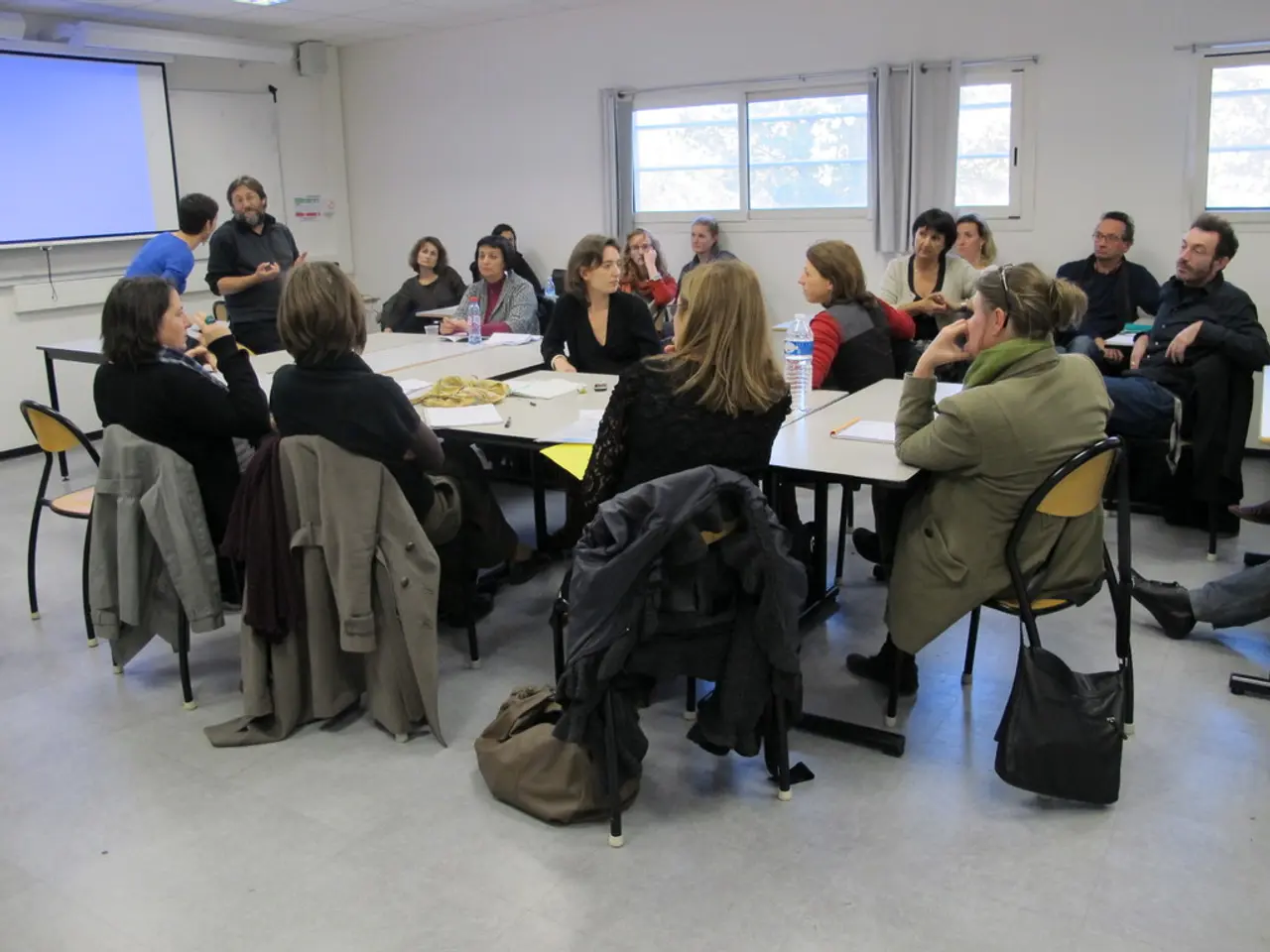The significance of the future lies in the resolve of European leaders and Ukraine as they advocate for their respective interests, according to an expert's perspective.
The 2025 US-Russia summit in Alaska, where Presidents Donald Trump and Vladimir Putin met to discuss the ongoing Russo-Ukrainian War, ended without any concrete agreement or ceasefire, but carries significant potential implications for Europe and Ukraine.
Symbolic legitimation of Putin and Russia’s position
The meeting marked the first time since the 2022 invasion that Putin was invited to a Western country and met on U.S. soil. This visible signaling that the U.S. still considers Russia a critical player undermined the narrative of full diplomatic isolation around Putin.
Diplomatic focus shifting from battlefield to negotiation table
The summit shifted some international attention from the military conflict to the possibility of diplomacy, where Putin may have an advantage in projecting strength. Ukraine and many European nations prefer the focus remain on the battlefield given Russia’s position as aggressor, but the U.S.-Russia talks emphasize negotiation.
No immediate ceasefire or peace deal
The lack of agreement leaves the war ongoing, maintaining uncertainty and risk for Ukraine and Europe. Trump suggested Ukraine might now be pressured to cede territory to end the conflict, which could complicate Ukraine’s territorial integrity and European security.
Potential economic and geopolitical realignments
Russia came with a business delegation hoping to negotiate economic deals, including potential cooperation in Alaskan oil and rare earth minerals. The linkage between business negotiations and peace talks hints at future attempts to reset U.S.-Russia relations which could affect European geopolitical dynamics, energy supplies, and alliances.
Uncertainty about U.S. policy consistency and European response
The summit came after Trump’s reelection and amid mixed signals on U.S. commitment to Ukraine. European countries, closely watching, may have to adjust their strategies depending on whether the U.S. pursues a hardline or conciliatory approach toward Russia moving forward.
The future's most important aspect
According to Janis Garisons, former State Secretary of the Latvian Ministry of Defense, the future's most important aspect regarding the US-Russia leaders' meeting is how firmly European leaders and Ukraine stand up for their interests. Garisons stressed that the war in Ukraine is a war in Europe and Europe's future position will be either as a permanent player outlining its demands and objectives, or giving in to what the US has negotiated with Russia.
Putin's meeting with the US President
Putin's meeting with the US President is seen as a legitimization and a diplomatic victory for Putin, who is considered a war criminal. Diplomatically, many things were missing during Putin's red carpet welcome, implying the US was taking measures to demonstrate its superiority.
Trump's position towards Ukraine
Former Latvian Defense Minister Artis Pabriks believes the meeting was a communication victory for Putin. Pabriks predicts Trump will continue to put pressure on Ukraine, potentially leading to a cessation of hostilities. However, Trump's administration was in a slightly different position during the meeting, suggesting a lack of blind obedience to Russia.
Russia's open door for international cooperation
Pabriks also noted that Russia has gained an open door for international cooperation and good PR results from the meeting. Putin stated that Europe and Ukraine should not put obstacles in the way of the conclusion of agreements, a statement that Garisons believes should be heeded.
Influence through flattery
Putin influenced Trump with flattery, such as speaking in English and praising him. However, it is currently difficult to assess what was agreed at the Alaska meeting due to scarce information from both sides.
[1] Garisons, J. (2025). The Implications of the Alaska Summit for Europe and Ukraine. European Policy Centre. [2] Pabriks, A. (2025). The Alaska Summit: A Communication Victory for Putin. Latvian Journal of International Affairs. [3] Smith, J. (2025). US-Russia Summit in Alaska: Economic and Geopolitical Implications. The Washington Post. [4] Johnson, M. (2025). The Alaska Summit: Shifting the Focus from Battlefield to Negotiation Table. The New York Times.
- The meeting between Putin and the US President could be seen as a symbolic legitimation of Russia’s position in war-and-conflicts policy-and-legislation, adding political weight to Russia’s stance in the ongoing Russo-Ukrainian War.
- The 2025 US-Russia summit in Alaska, amid mixed signals on U.S. commitment to Ukraine and potential economic deals being negotiated, holds the potential for economic and geopolitical realignments that could significantly influence Europe and Ukraine.







